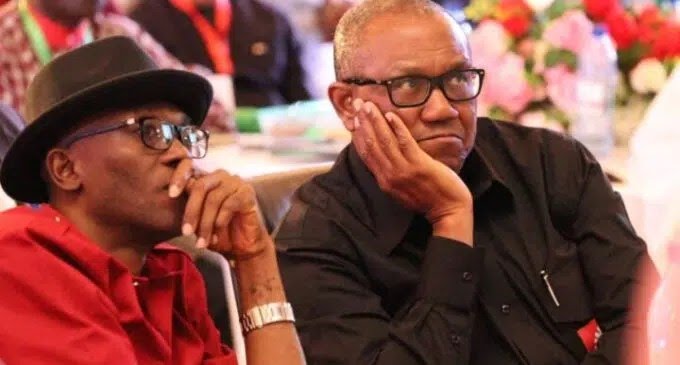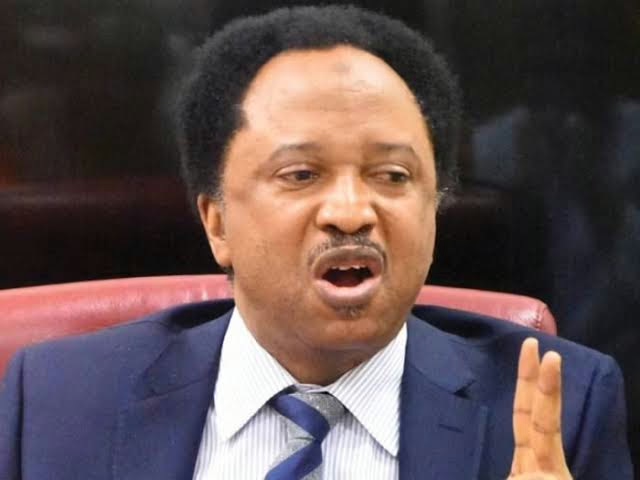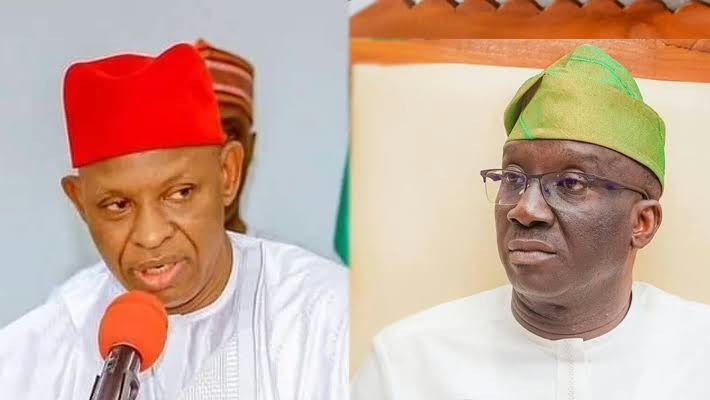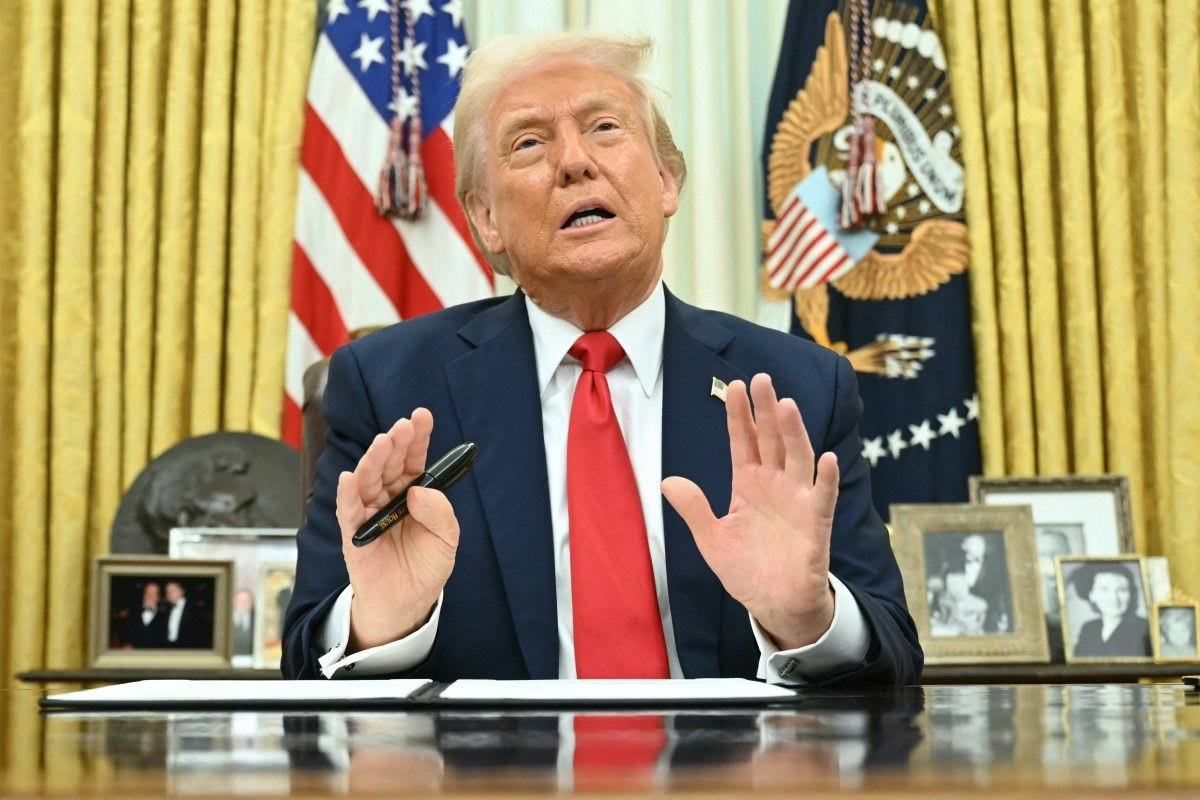Professor Eric Uwanduegwu Ofoedu has disclosed that a total votes of 2, 565, 629 accredited voters were not reflected in the final result of the February 25 presidential election announced by the Chairman of the Independent National Electoral Commission (INEC), Prof. Yakubu Mahmood.
Ofoedu, who is a Professor of Mathematics at the Nnamdi Azikiwe University, Awka, Anambra, explained to the Presidential Election Petitions Court (PEPC) why he employed the use of projection in his analysis of election results from Rivers and Benue States.
Led in evidence by counsel to the petitioners, Dr Onyechi Ikpeazu (SAN), the subpoenaed witness
The professor was led to give his evidence in chief by the lawyer representing the LP presidential candidate, Peter Obi, Onyechi Ikpeazu SAN, he alleged that when the blurred results he downloaded were matched with Form EC8As (polling unit results) given to Labour Party agents at the affected Polling Units, votes of 2,565,269 accredited voters were not reflected in the final results announced by the INEC Chairman.
“I observed that, from IREV portal, scores on Form EC8As of 39,546 polling units were inaccessible – contain uploads were not connected with the Presidential Election.
From the IREV portal, 18,088 polling units’ results were blurred. This number of PUs negatively impacted the votes of 2,565,269 accredited voters and 9,165,191 voters that collected their PVCS,” the professor had said in his statement on oath.
He had tendered in evidence, reports of Data Analysis from the Results of Nigeria’s February 25, 2023 presidential election in Rivers and Benue state among other documents.
Ofoedu had told the court that he downloaded 18,088 blurred polling unit results from the INEC Result Viewing Portal, IREV.
He explained why he used projection for Rivers and Benue during cross-examination by the legal team of the Independent National Electoral Commission, President Bola Tinubu, Kashim Shettima and All Progressives Congress.
During his cross-examination by INEC’s lawyer, A.B Mahmoud SAN, Ofoedu said while he voted in the election, he was on February 20 requested by the Labour party to produce report on the election results on IREV and he eventually accepted for the purpose of using his assessment to educate his students.
He agreed with INEC that his primary source of data was the IREV portal.
Asked his reference to INEC Form EC8As (polling unit results) were same with the scanned results uploaded to the IREV, he said there was difference between several hardcopies of Form EC8As and what was uploaded on IREV.
In place of uploaded Form EC8As, there were blurred copies on IREV,” the witness added.
At this point Mahmoud asked, “You made reference to 18,088 blurred polling units results on IREV. You referred to Form EC8As received by Labour party agents. Did you attach them to your report?”
The witness said he did not, adding that he thought they were already tendered (by Obi’s lawyers) to the court.
Mahmoud told him he was not an election expert and could not have competently determined what constituted compliance or non compliance to the Electoral Act 2022.
“It depends on what you mean by that. I can determine electoral compliance,” the witness replied.
In their cross-examination, counsel to Tinubu and Kashim Shettima, Akin Olujimi SAN, asked the witness to confirm whether the results already declared from polling units to the National Collation Centre by INEC “will change” if there is failure to transmit results from polling units to IREV , or if the results he claimed to download from the portal were blurred.
The witness said ” It will not change if it (Form EC8As) is properly used.”
The professor agreed that IRev is not a collation centre but it was meant to serve as a checker.
“Your report covers only two states, Benue and Rivers states?,” Olujimi asked him.
“Not only two states, but two states stand distinctively. Actually, we did analysis of all the states,” the professor replied.
Olujimi then asked that apart from Benue and Rivers, which other state did he mention in his reports.
The witness said he mentioned no other state.
When pressed further, the professor made it clear that he worked only on available data and if he had access to all the data, his results assessment will be different.
Olujimi asked him that if he was engaged by Labour party on February 20 to carry out data analysis of the Presidential Election and determine INEC compliance with Electoral Act, the witness responded in the affirmative.
Olujimi told him he already had a premonition about who should have won the election.
“I accepted to do the analysis because of my students,” Ofoedu told the court.
APC lawyer, Abiodun Ikoko SAN, also cross-examined the professor: “The report you tendered was based on blurred results you downloaded from IREV?,”
The witness said his report was not just limited to the blurred results he already tendered in court.
He was asked what aspect of mathematics he engaged to analyse the blurred results, to which, he answered that there is no theory in knowing that something is blurred.
The APC asked him what theory he used in choosing Rivers and Benue state as the touch stone of his analysis.
“It was a random pick,” the professor said.
He was asked if the total number of polling units in Rivers and Benue adds up to the 18,088 polling units he said were blurred on IREV.
“My lord, the 18,088 blurred results are not connected with the polling unit results in Rivers and Benue states,” Ofoedu said.
He added that the data he analysed was an “exact data”, while he randomly picked Rivers and Benue state from all the 36 states and the Federal Capital Territory.
He told the court that the most important INEC form to analyse in an election is Form EC8A, that is, polling unit results.
The witness was subsequently discharged.
After him, Arise News staff, Lumic Edevbie came forward for cross-examination by the respondents, as the petitioner’s fifth witness.
APC legal team asked him to summarise his understanding of the INEC Chairman’s briefing at the Chatham House, London.
“In summary, INEC and its official decided to use technology for the 2023 elections,” he said, and was subsequently discharged.
In his evidence, the sixth Petitioners witness (PW6), a staff of African Independent Television(AIT), Ijeoma O tendered a video of the television station’s Democracy Day program, which featured the INEC Chairman, Yakubu Mahmood, saying election results will be uploaded from polling units on election day in real-time.
The case was further adjourned to Monday by the five-man panel of the court led by Justice Haruna Tsammani.
Credit: The Sun












Leave a Reply